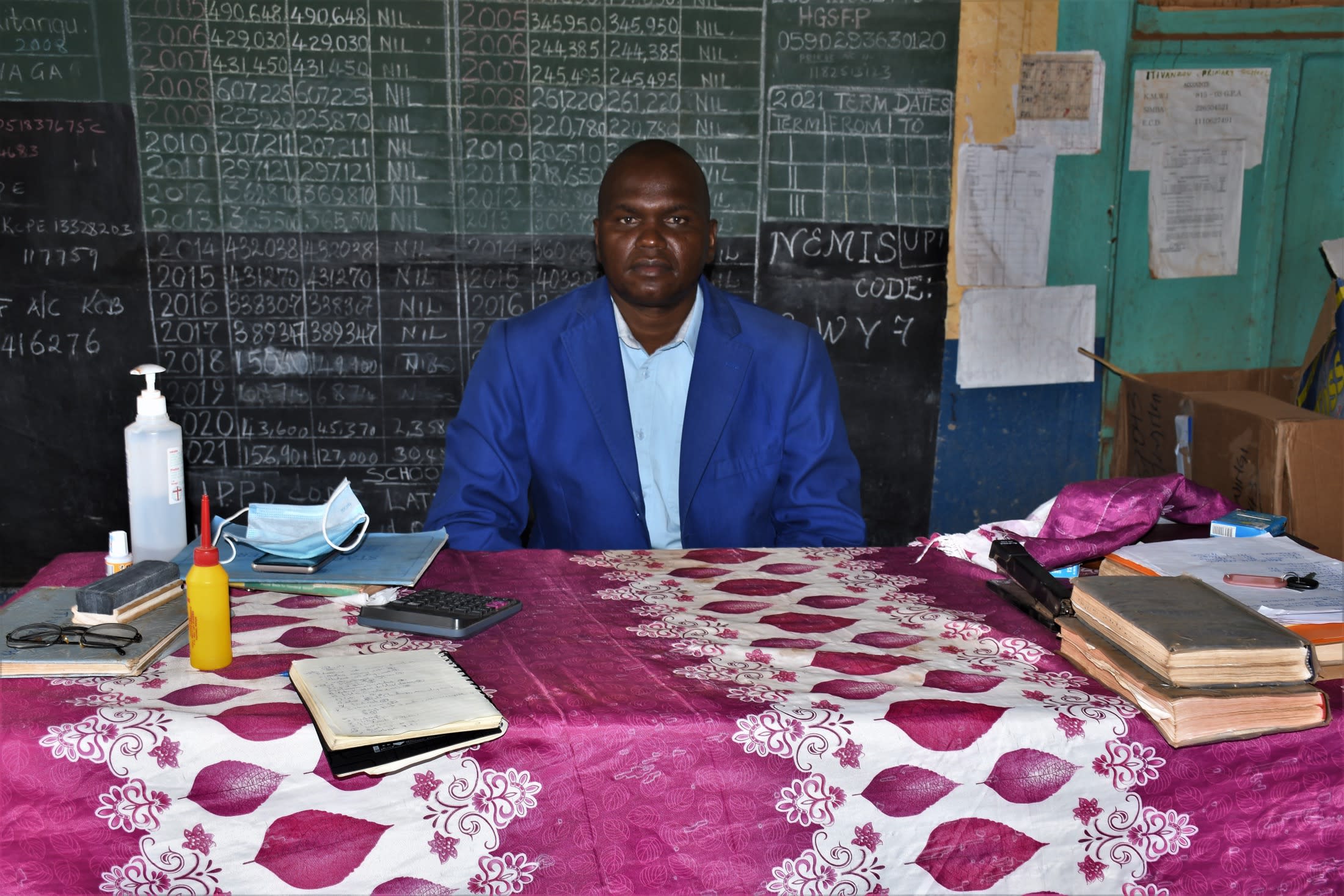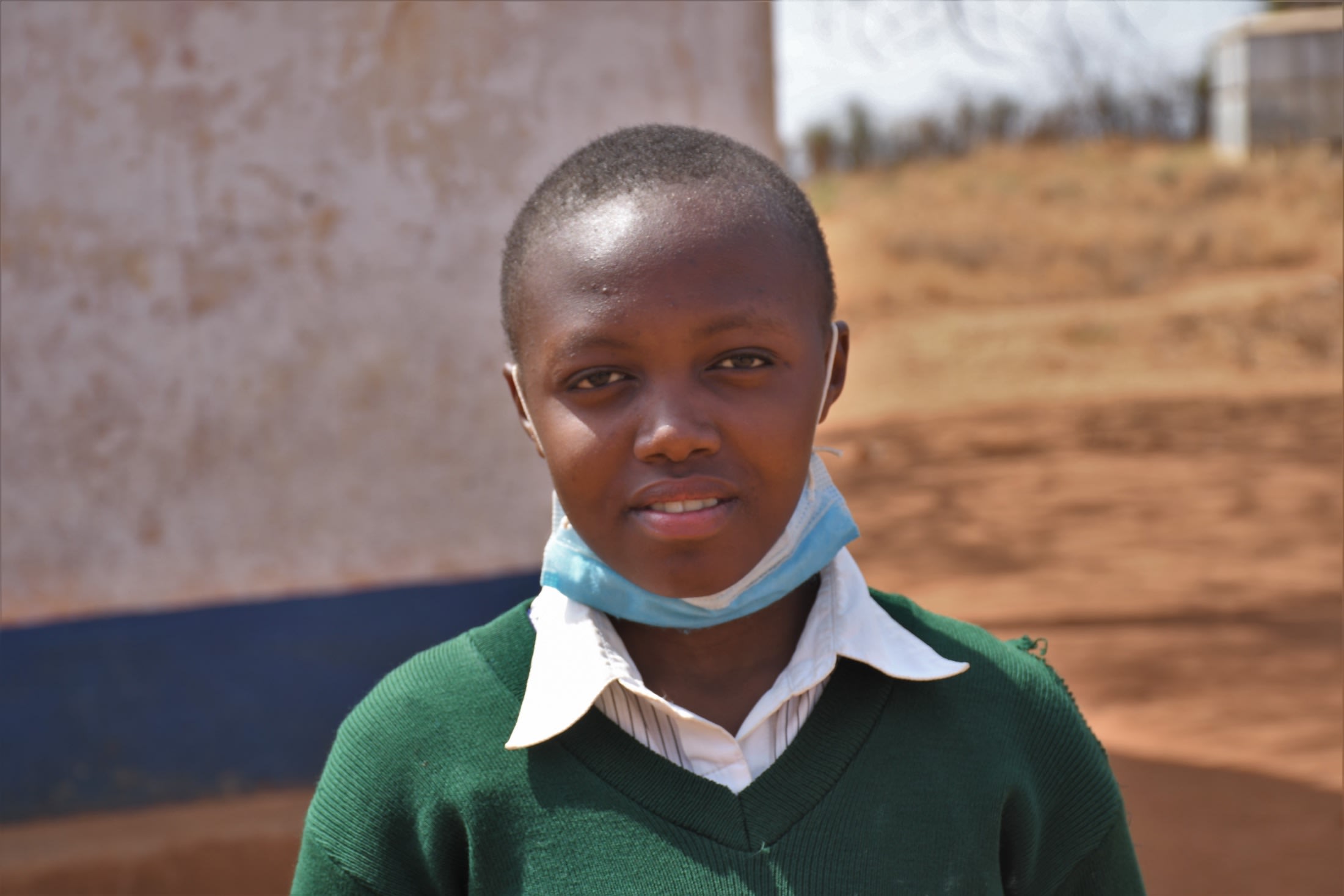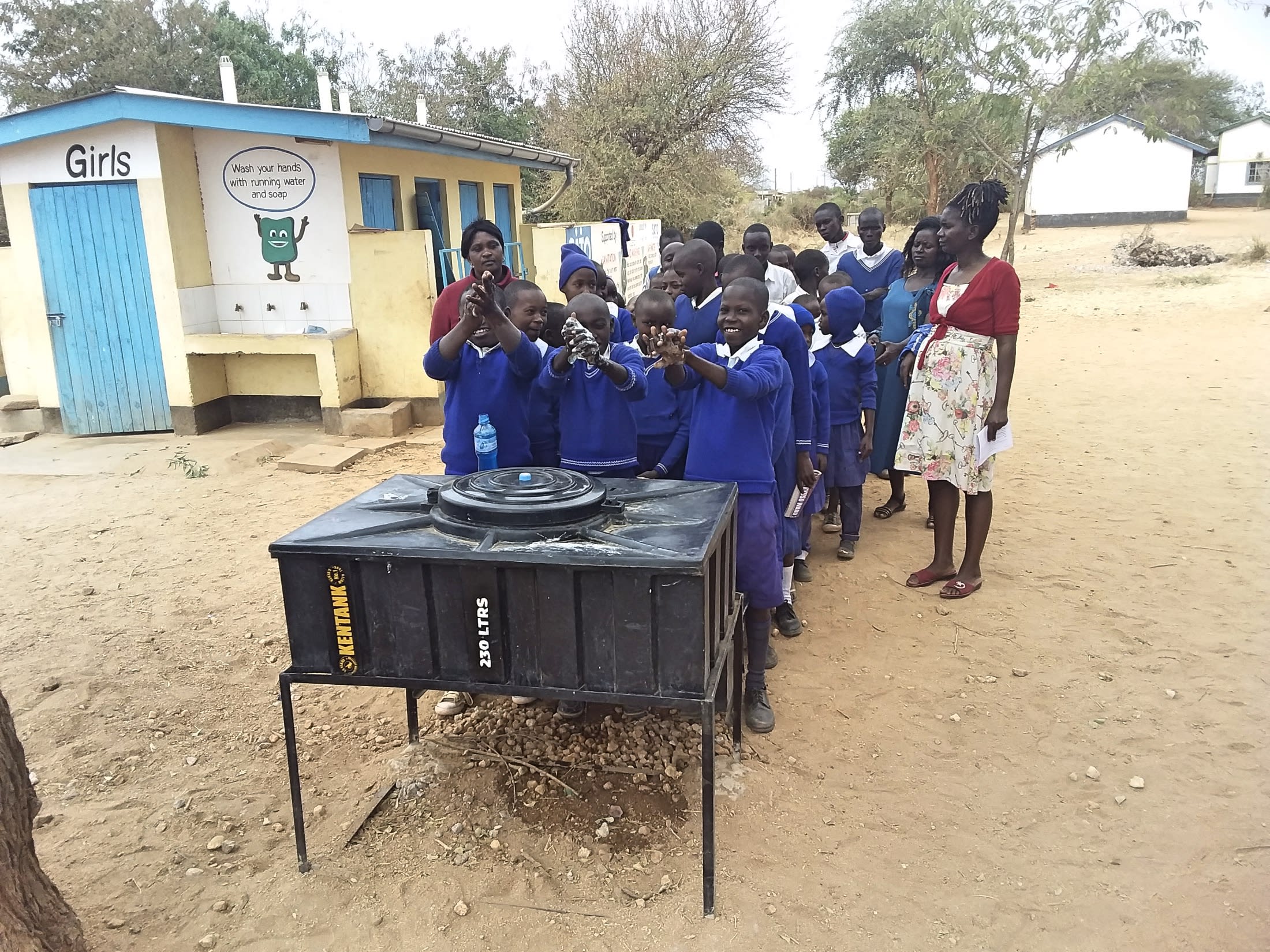Itiva Nzou Primary School has insufficient water to sustain its entire student and staff population of 523. Currently, the school relies on a community borehole tap and small rainwater collection tanks, but they are not enough. The consequences of the water scarcity for the students and staff of Itiva Nzou are far-reaching.
Students walk to the tap and attempt to fetch water each morning before 7 am, but sometimes there is no water. When this happens, students waiting in line to collect water waste valuable time they could use learning. When there is water, they end up exhausted from all the fetching and carrying.
Being thirsty and tired leaves them unable to concentrate in class, causing their academic performance to suffer. Any water they can collect must be used sparingly, which fuels an ongoing problem of poor hygiene and sanitation, including students not washing their hands after visiting the latrines.
Phillip Mbia (pictured below), the school's Head Teacher, shared, "The students do not have sufficient water for cooking and drinking, which leads to poor concentration in class. This reduces the school's academic performance and [the] ability of the students to join good secondary schools. The students also fall sick sometimes, which leads to absenteeism and [a] lack of focus on academic performance."

He continued, "The school also has to use water sparingly, which negatively affects hygiene and sanitation in the school's facilities, such as latrines and classrooms. It is also difficult to teach subjects such as agriculture because there is little water to take care of the crops."
The community's borehole runs dry due to the high demand from community members, school students, and staff. When the well goes dry, quarrels break out because everyone feels the tension of water scarcity.

Naomi P., 13, said: "The standing tap offers inadequate water to meet our needs such as cooking, drinking, and hygiene and sanitation. Our classrooms are rarely cleaned because we have to use the available little water sparingly. This impairs the comfort in our classrooms and reduces our concentration on studies. Queueing to fetch water also reduces our time on studies because the entire school population depends [on] one tap."
The school needs a reliable, sufficient water source to meet their daily needs without costing students the time and energy they need for learning. And hopefully, by having their own water source, their relationship with the community can be strengthened.
Rain Tank
We will build a 104,000-liter rain tank for this school, making the others look tiny in comparison. Because of how rarely it rains in Southeastern Kenya, this tank's large volume is designed to store as much water as possible during the seasonal rains, making more water available through the dry months. This water will benefit the students, teachers, and supplementary staff.
Parents will mobilize the materials needed for construction, including sand, stones, and water. They will also lend their strength and time to help with the construction. We will complement their materials with a skilled artisan to lead the project in addition to providing the tools, lumber, metal, cement, and gutter system.
As soon as the tank has time to cure, it can begin collecting rainwater for the school's use.
Training
We will train students and staff on sanitation, hygiene, and other topics for 1 day. Those in attendance will form a school health club that will promote good hygiene and sanitation practices both at school and at home. They will learn all of the steps to proper handwashing, how to treat water, and how to keep their environment clean. The school will also be taught how to best oversee and maintain their new rain tank and handwashing stations.
Handwashing Stations
A total of 3 handwashing stations will be installed upon the project's completion and before training. These are 1,000-liter plastic tanks fitted with 3 taps each, allowing 9 students to wash their hands at once. The student health club and school management will be responsible for making sure the tanks are filled with water and that a cleaning agent such as soap or ash is always available.

 Rainwater Catchment
Rainwater Catchment
 Rehabilitation Project
Rehabilitation Project

































